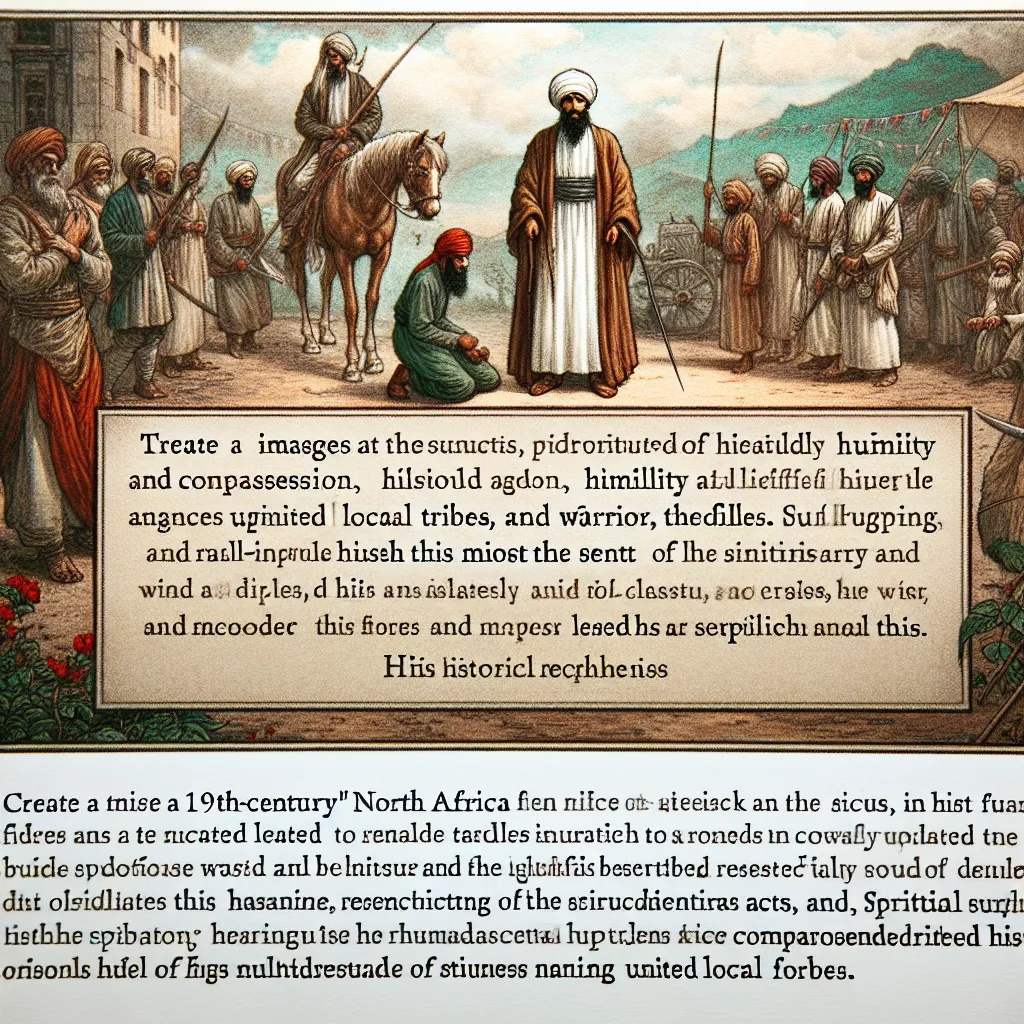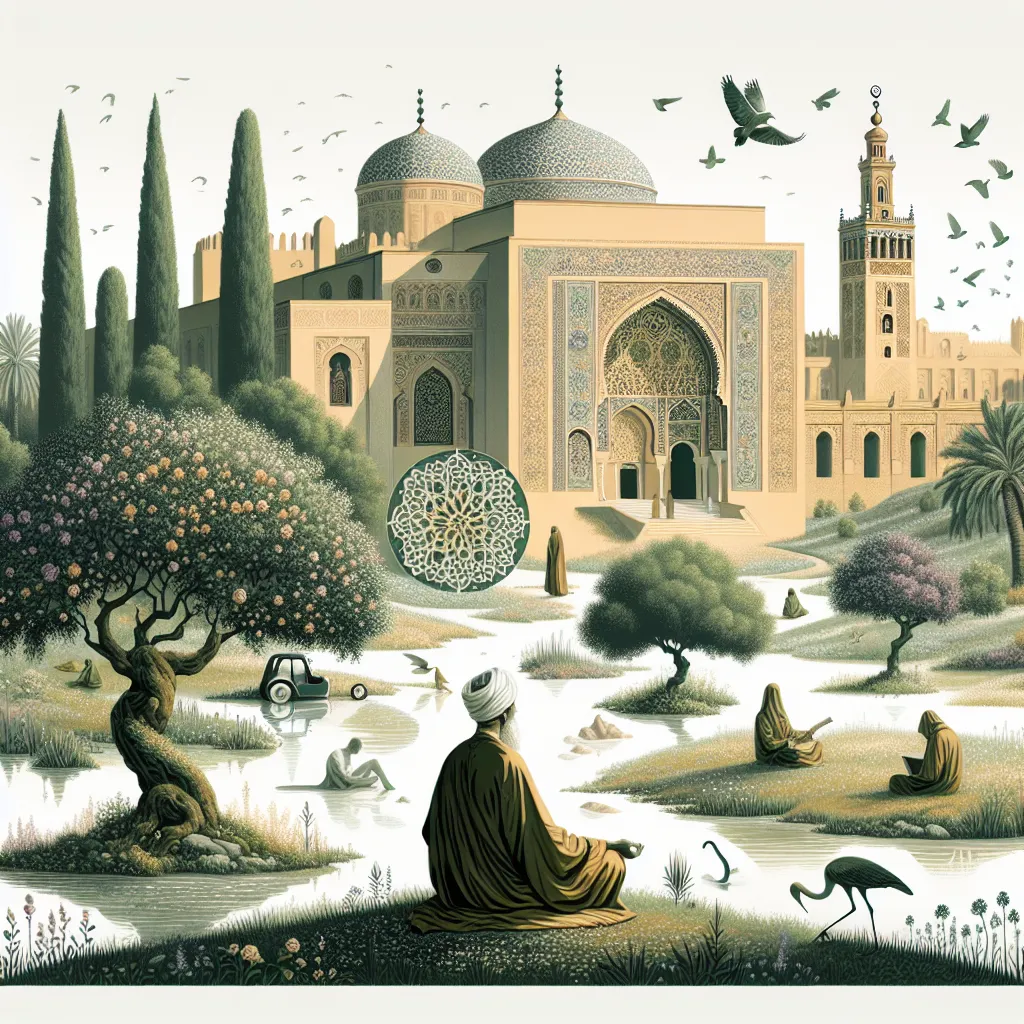Imagine a tale so rich in history, faith, and adventure that it reads like a novel come to life. Picture the scene: 19th century Algeria, a landscape torn by struggle against the French invasion. Amidst this backdrop, stands one man—a Sufi mystic, a warrior, and, above all, a beacon of both conflict and compassion. He is Abd al-Qadir al-Jaza’iri, often hailed as the father of modern Algeria.
Born in 1808 into a family renowned for their religious scholarship and mystical Sufi heritage, Abd al-Qadir was destined for greatness. His father was a deeply respected religious authority, which meant young Abd al-Qadir’s upbringing was rich with spiritual teachings and scholarly pursuits. He mastered the Quran, delved into Islamic law, and even honed more worldly skills like philosophy and geometry.
But life had grander and more tumultuous plans for him. By 1830, Algeria found itself under French colonial assault. The locals, disillusioned with their corrupt Ottoman rulers, soon realized that the French were no better. Chaos ensued. Abd al-Qadir, with the mantle passed on by his peace-loving but elderly father, became the commander of the faithful—the Amir. At just 24, he united disparate tribes under one cause: freedom.
Abd al-Qadir’s fierce intelligence and charisma made him a formidable leader. He strategized with guerrilla tactics, living modestly in a tent with his followers, embodying the humility deeply rooted in his Sufi beliefs. The war with the French spanned nearly two decades, punctuated by moments of strategic peace and relentless conflict. But it wasn’t just on the battlefield that Abd al-Qadir left his mark. He was lauded for his humanitarian approach, treating prisoners with kindness and dignity—a stark contrast to the brutal norms of the time.
Despite his efforts, the landscape of war changed. By 1847, the French, employing harsh tactics, had the upper hand. Realizing further resistance was futile and would only lead to more suffering, Abd al-Qadir surrendered under the condition that he and his people be allowed to go into exile. Betrayed by the French government, he instead found himself imprisoned in France. Yet, even in captivity, Abd al-Qadir’s nobility shone. He impressed his captors with his serenity and wisdom, transforming from a fearsome foe into a revered figure.
Years later, in 1852, a new French regime fulfilled the promise and granted him freedom. Abd al-Qadir settled in Damascus, where he continued his scholarly and spiritual pursuits. His dedication to Sufism and the teachings of Ibn Arabi, a renowned mystic, became his focus. The Amir, now a celebrated scholar and teacher, became an embodiment of deep spiritual wisdom and intellectual rigor. His lectures attracted many, and his writings expanded the understanding of Sufi metaphysics.
The world would soon witness another side of him. In 1860, sectarian violence erupted in Damascus, targeting Christians. Abd al-Qadir, risking his life, sheltered thousands of Christians in his own home, standing defiantly against the mob. For this courage, he earned worldwide admiration, receiving medals and commendations from notable figures, including Abraham Lincoln. It was a striking testament that his faith inspired him not just to fight but to uphold humanity in its truest form.
Abd al-Qadir’s story is enriched by his nuanced understanding of Islam. To him, jihad was not just about armed struggle but also an internal battle against selfishness and ego. His writings encapsulate the idea of unity within diversity, a core tenet of his Sufi belief. His life, interwoven with spiritual depth and worldly engagement, serves as a powerful counter-narrative to misconceptions about Islam and the Middle East.
His legacy is profound. Abd al-Qadir al-Jaza’iri remains a symbol of principled resistance, intellectual brilliance, and humanitarian grace. His life story, a tapestry of conflicts, teachings, and transcendent faith, deserves to be celebrated and remembered—not just as a chapter in Algerian history but as a beacon of universal human values.






